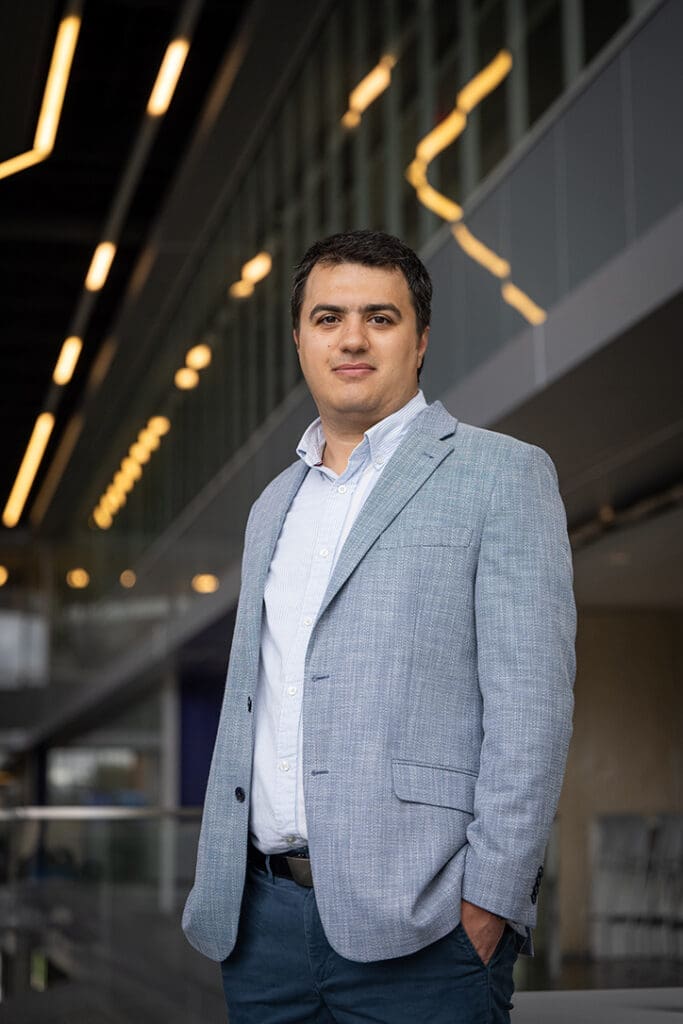Image: Davood B. Pourkargar, assistant professor of chemical engineering. Image courtesy K-State
A Kansas State University researcher is leading a new effort to use machine learning to transform how chemical synthesis and advanced materials are developed. Davood B. Pourkargar, assistant professor in the Tim Taylor Department of Chemical Engineering, has secured more than $578,000 from the National Science Foundation for a three-year study aimed at improving the efficiency of chemical synthesis, particularly for renewable energy applications.
The project moves beyond traditional trial-and-error methods by using an adaptive design of experiments—an approach that simultaneously evaluates and optimizes multiple variables in complex processes. Pourkargar says this can dramatically improve the quality of chemical products while saving time and resources.
The research team includes K-State’s Bin Liu and the University of Utah’s Chuancheng Duan. Their focus is on enhancing the design of perovskite oxides, materials widely used in energy technologies like fuel cells and electrochemical reactors. The broader goal is to apply these methods across industries, from pharmaceuticals to aerospace, helping reduce costs and boost innovation.













